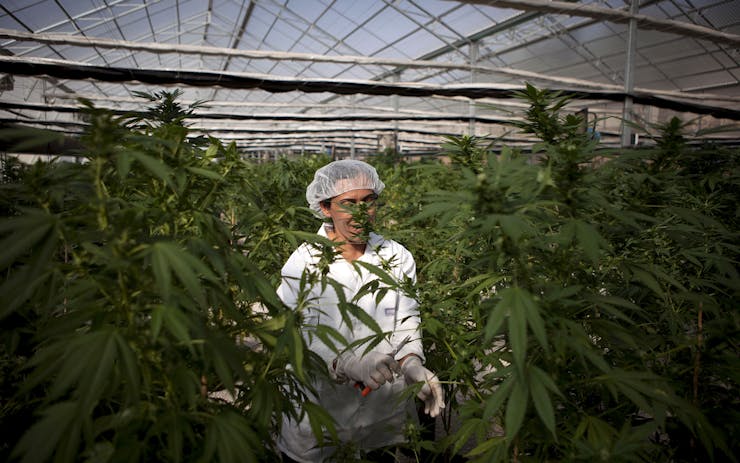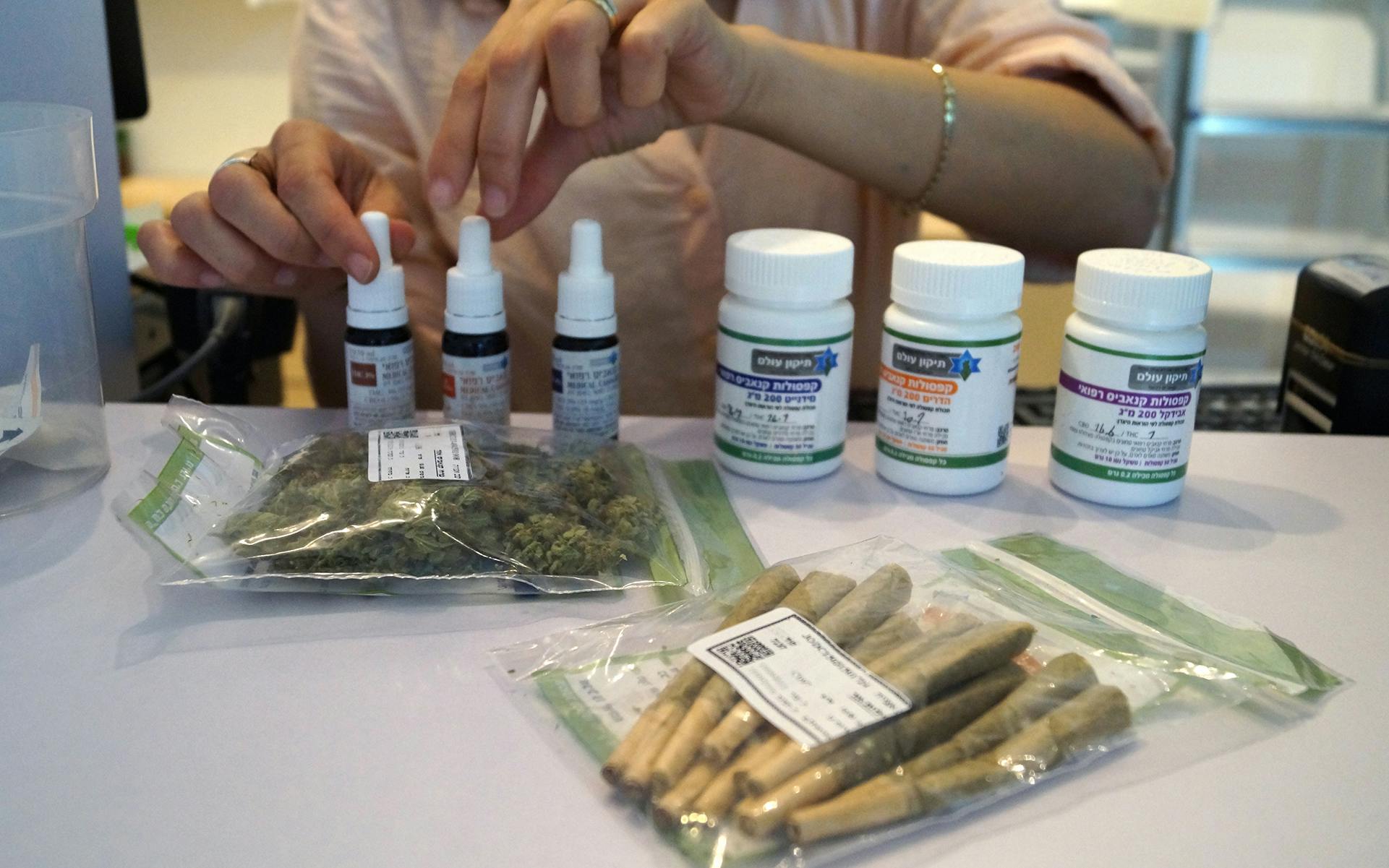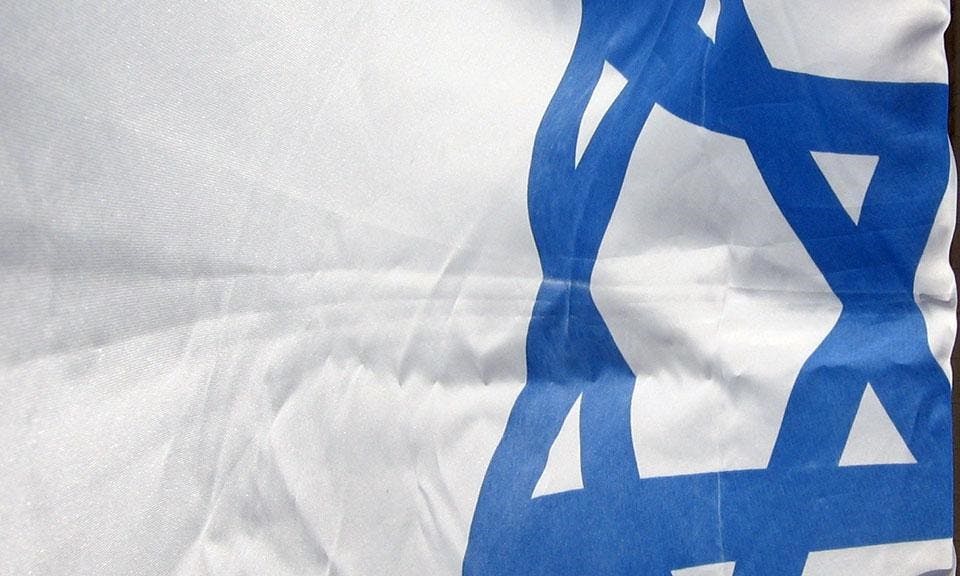Decriminalization is a vague word; its meaning shifts depending on what country it’s applied in. Over the weekend, global media broadcast the news that the Israeli government had approved a cannabis decriminalization plan. The proposal must still be ratified by parliament. “Israel cannot shut its eyes to the changes being made across the world in respect to marijuana consumption and its effects,” Justice Minister Ayelet Shaked said in a statement.
Advocates see it as a weak half-measure that still keeps personal use illegal.
But in Israel, many cannabists and legalization advocates see the plan as little more than a weak half-measure that still keeps personal use illegal and punishable by law.
“This plan is far from decriminalization,” Oren Lebovich told Leafly. Lebovich is chairman of the Green Leaf party and founder of the Israeli magazine Cannabis. “It can still land people in jail,” he said. “Worse, it allows the police to search and enter a house when they suspect someone is smoking a joint. Nor does it expunge the record of anyone previously convicted of this so-called ‘crime.’ Thankfully, this is only a first draft and we have two more months to change it before it becomes law.”
Israel is widely recognized as the global hub of medical cannabis research. Unlike the US, which bans most research into the medical and health benefits of the plant, the Israeli government has long encouraged scientific inquiry into cannabis. That’s led to significant advances in our understanding of the plant’s properties. Decades ago, Israeli scientist Raphael Mechoulam identified THC as the pychoactive ingredient in cannabis, and his lab at Tel Aviv University continues to produce breakthrough research.
Israel has a robust and expanding medical marijuana system. There are 28,000 patients currently licensed to use medical cannabis; that number is due to double in 2017. But the proposed decriminalization measure keeps “personal” (recreational) use illegal and can, in fact, land a consumer in jail for up to 3 years for possessing as little as a half ounce (15 grams).
Still charges, prosecution, and jail time
Under the proposed decriminalization law, first-time offenders caught using cannabis for personal use will still be charged and prosecuted, unless they are willing to admit the offense and pay a $270 fine. Second offenders, same deal, but the fine doubles to $550—a steep price in a country where the average monthly pre-tax salary is $2500. A third offense results in the loss of your driver’s license and you’re sent to rehab. The fourth time you face up to 3 years in jail, depending on the judge’s discretion.
‘If cannabis isn't a crime, why prosecute at all?’
“Before this ‘decriminalization,’ first offenders weren’t prosecuted or fined,” says Lebovich, “so basically this measure makes things worse. If lawmakers agree that cannabis isn’t a crime why prosecute at all? This measure upholds repression as a policy and maintains the idea that this plant is an evil that can be eradicated and that people who use it can be forced into abstinence. We may lead the world in cannabis research but we have a lot to learn about decriminalization from other countries.”
Some European countries have adopted a truer form of cannabis decriminalization and seen positive benefits—both to consumers and to society.
In a paper titled, “Israel led the world in cannabis research—but what could it learn from others about decriminalization?,” Ruth Dreifuss, the former President of Switzerland and Chair of the Global Commission on Drug Policy, noted that full decriminalization in several European countries has typically brought about unforeseen economic and health benefits. “These include a notable increase in the number of people accessing treatment, a substantial decrease in injection-related HIV transmission, and less strain on the criminal justice system,” she wrote. “Drug offenders made up 44 per cent of the prison population in Portugal in 1999, but this fell to 21 per cent by 2008. Neither did people ‘flock’ to Portugal from other countries to take advantage of decriminalization laws. Finally, there have been proven financial savings and public health benefits since decriminalization in Portugal and the Czech Republic.”
Oren Lebovitch, Israel’s Green Leaf party chairman, sees his country’s latest reform as a disappointing half step. “If this were real decriminalization you wouldn’t be prosecuted for personal use and the old records would be expunged,” he said. “We still have a long way to go.”







